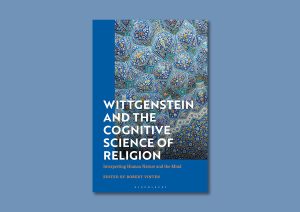The Lisbon Wittgenstein Group (LWG) is a transversal research platform at IFILNOVA that brings together researchers from various labs there, namely ArgLab, CultureLab and EPLab. The history of research on Wittgenstein at IFILNOVA dates back to the times of the Institute of Philosophy of Language (IFL) which, in addition to supporting several doctoral and master’s theses, as well as post-doctoral projects, under the supervision of António Marques and Maria Filomena Molder, hosted the project “Wittgenstein’s Philosophical Investigations: Re-evaluating a Project” (PI: Nuno Venturinha), funded by the FCT (100.000€) and developed between 2010 and 2013. After 2014 IFILNOVA continued to promote the advanced training of researchers with work centred on Wittgenstein and the organisation of events, among which the 6th Symposium of the Internationale Ludwig Wittgenstein Gesellschaft (ILWG) in 2017, with the theme ‘Wittgenstein and Applied Epistemology’ (Org.: Nuno Venturinha), stands out. Having first been active between 2016 and 2017, the LWG then dissolved into the project ‘Epistemology of Religious Belief: Wittgenstein, Grammar and the Contemporary World’ (PI: Nuno Venturinha), funded by the FCT (208,623€) and developed between 2018 and 2022 in the ArgLab, until it was reactivated in 2022. The journal Wittgenstein-Studien, published by De Gruyter and indexed by Scopus, has been co-edited by Nuno Venturinha since 2019. There have been several activities concerning Wittgenstein carried out beyond the boundaries of the university by members of IFILNOVA: in libraries, cinemas, museums and other cultural spaces.
The objective of the LWG is to promote research on Wittgenstein’s thought and work, as well as on authors and topics related to his philosophy that are involved in contemporary philosophical discussion. As a transversal platform, the LWG aims to encourage (i) the realisation of master’s and doctoral theses, as well as post-doctoral projects, in any area of Wittgenstein’s thought, supporting applications for individual funding; (ii) the design and development of collective research projects, in a collaborative manner, on Wittgensteinian themes that may involve international institutions and partners; (iii) the organisation of conferences, lectures, seminars, and workshops that focus on Wittgenstein and authors who directly influenced him (Frege, Russell, etc.) or who were directly influenced by him (Anscombe, von Wright, etc.); (iv) outreach activities to raise awareness of Wittgenstein among the general public.
ArgLab, which has most promoted research around this author in recent years, is the natural host for a platform like this.
Cátia Rodrigues
Francisco Caramelo
João Mourão
João Regueira
Maria Joana Vilela




